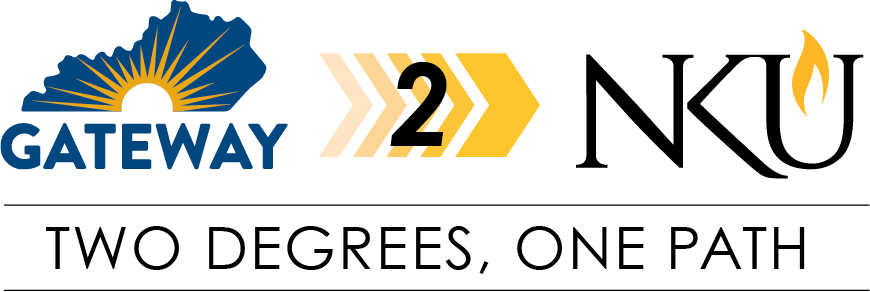
Additional Information about Nursing at Gateway
Typical Schedule Once Admitted
The Nursing Program is rigorous, but the updated schedule is designed to help support balance between college, working part-time, and personal responsibilities. Each level (semester) of the program will follow a two-day-per-week on-campus schedule, plus the assigned clinical day.
All students will follow this structure in Levels 1–4. In Levels 2–4, specialty courses (Behavioral Health, Maternal Newborn, Pediatrics) are offered in a hybrid format. The lecture and lab for these specialty courses will still occur during the same two on-campus days used for the Medical/Surgical course. Students may have additional clinical hours required for these specialties, depending on the course.
Program Cost Estimate
Tuition and Charges: $11,584
Books, Supplies, and Other Expenses: $5,129
Total Estimate: $16,713*
*The tuition, fees, books, supplies and other expenses estimate includes all courses associated with the ADN program curriculum, from start to finish, as well as clinical placement.
Estimate may be lower if student has transferred courses from another institution.
Tuition is based on the in-state tuition rate. For more information about Gateway’s tuition and fees, please visit the Tuition and Charges webpage.
All program cost estimates are subject to change.
Transfer Pathways
Credits earned at Gateway will transfer to most universities to allow you to continue your education. You are encouraged to take advantage of transfer pathways available to help you advance your education in nursing. As it relates to nursing specifically, Gateway currently has a RN to BSN pathway with Northern Kentucky University (NKU), Thomas More University (TMU), and University of Cincinnati (UC). For more information, review the Gateway2NKU Transfer Pathway.
Mission & Technical Standards
The Associate Degree Nursing Program prepares graduates to provide and manage client care and to become members within the discipline of nursing. Intrinsic to the three roles of the nurse-provider of care, manager of care and member of the discipline – are the eight core components of nursing practice. These include professional behaviors, communication, nursing process, clinical decision-making, caring interventions, teaching and learning, collaboration and managing care.
Nursing at the technical level involves the provision of direct care for individuals and characterized by the application of verified knowledge in the skillful performance of nursing functions. The provision of safe patient care necessitates the student’s ability to respond to multiple sensory and environmental cues and the student must be able to tolerate stressful and physically taxing workloads. All students should possess:
- Sufficient visual acuity, such as is needed in the accurate preparation and administration of medications, and for the observation necessary for patient assessment and nursing care.
- Sufficient auditory perception to receive verbal communication from patients and members of the health care team and to assess health needs of people using monitoring devices such as cardiac monitors, stethoscopes, IV infusion pumps, fire alarms, etc.
- Sufficient gross and fine motor coordination to respond promptly and to implement the skills, including the manipulation of equipment required in meeting health needs.
- Sufficient communication skills (speech, writing, reading) to interact with individuals and to communicate their needs promptly and effectively, as may be necessary in the individual’s interest.
- Sufficient intellectual and emotional functions to plan and implement care for the individuals. Care for individuals in a respectful, sensitive, and effective manner regardless of gender, age, race, sexual orientation, religion, disability, or any other status identified in Gateway’s Non‐Discrimination Policy.
- Sufficient ability to manage stressful situations, allowing the student to perform at the required levels in all components of the program.
- The capability to concentrate for long periods of time in selecting correct techniques, equipment, and safety measures to assure maximum care and safety of the patient. Therefore, the student must be able to exercise independent judgments under both routine and emergency conditions. A person under the influence of alcohol or consciousness-altering drugs may not meet the above criteria.
- The ability to tolerate and function safely in environmental conditions, such as exposure to a variety of substances (such as latex products) and conditions within the classroom and clinical environment: temperature fluctuations; hazardous waste materials and blood, body tissue or fluids; loud noises or unpleasant odors. Must be ability to tolerate and function safely while navigating the clinical environment.
Students (or program applicants) should have reasonable expectations that they can complete the program of study and meet the educational objectives. A reasonable and appropriate accommodation is one that does not require a fundamental alternation in the nature of the program or lower academic and/or clinical standards or expectations.
Program Philosophy
The philosophy of the Associate Degree Nursing (ADN) program is congruent with the Kentucky Community and Technical College System (KCTCS) mission statement and is supported by the works of the National League for Nursing (NLN) Education Competencies and Quality and Safety Education in Nursing (QSEN).
The nursing faculty believe nursing is holistically evolving, blended with science, and the art of caring. Nursing demonstrates the provision of patient-centered care based on quality standards and evidence based practice through the inclusion of theoretical concepts.
Learning in an educational setting is enhanced by a teacher-student relationship and clearly defined student learning outcomes. The nurse educator’s responsibility is to structure and facilitate optimal conditions for critical thinking from simple to complex. The student brings to this relationship the willingness to learn and is accountable for his/her education.
The ADN graduate, having achieved the graduate outcomes is prepared to practice in a variety of settings with the parameters of individual knowledge and experience according to the standards of practice.
Student Nurse Organization (SNO)
Students accepted into the Nursing Program are encouraged to become members of the Student Nurse Organization (SNO). The purpose of this organization is to promote development of the skills a student will need as responsible and accountable members of the nursing profession. Members of the organization will act as liaisons for communications between students and faculty. In addition, coordinating activities and representing the organization in campus-wide and community activities.
Visit Gateway’s Student Organizations for more opportunities.

